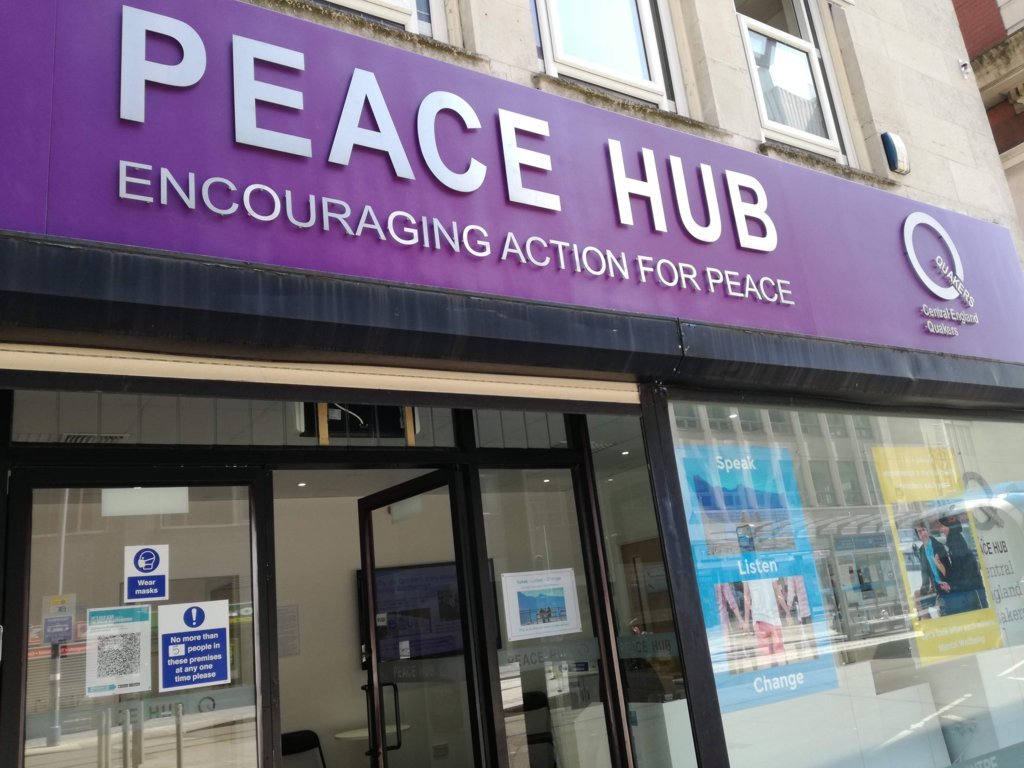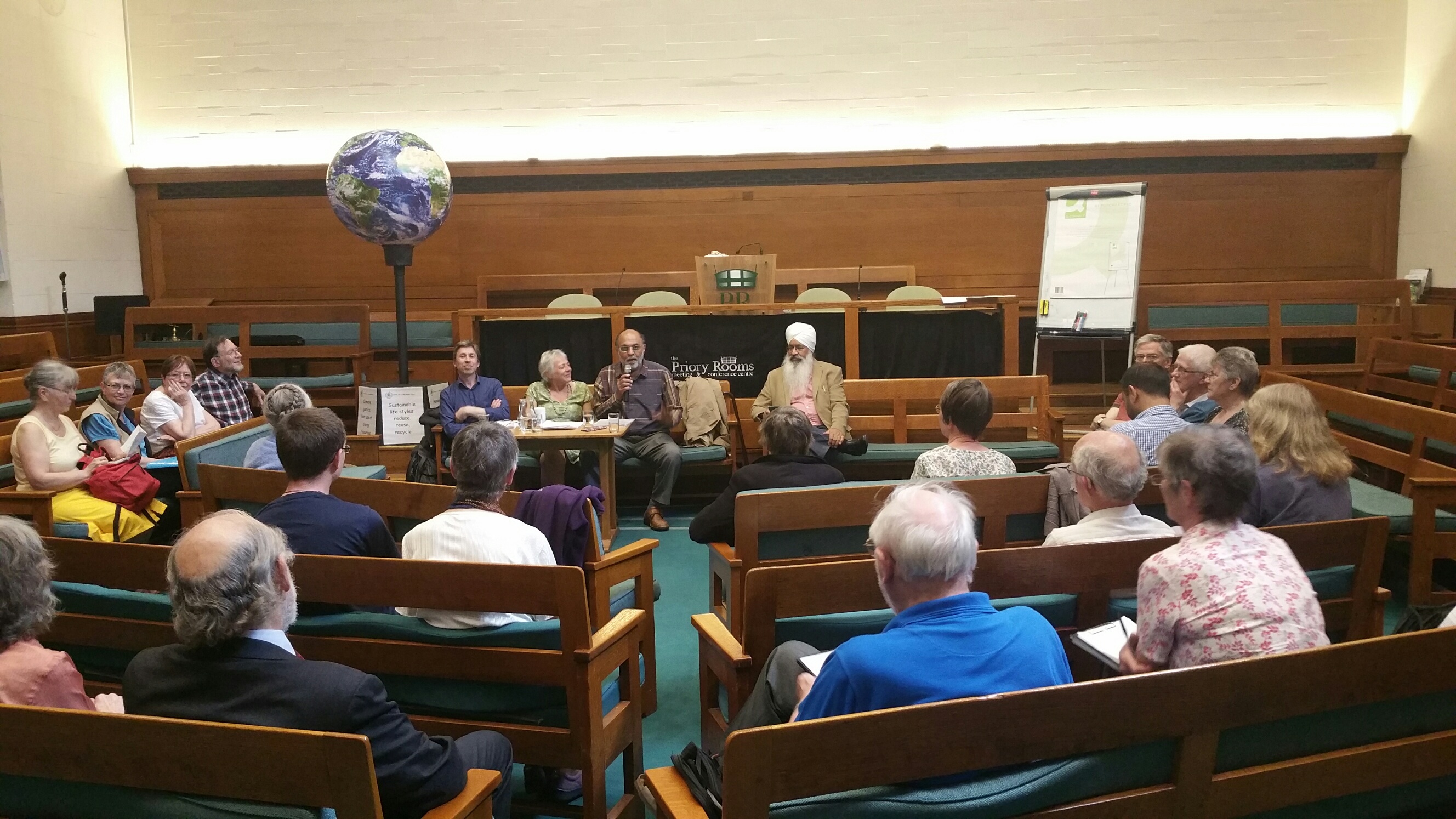Many Faiths – One Planet – One Future
People of faith from across Birmingham came together recently at Bull Street Quaker meeting house to discuss ‘Many Faiths – One Planet – One Future’. The multi-faith forum, hosted by Footsteps (Faiths for a Low Carbon Future – of which Peace Hub is a partner organisation) featured speakers and lively discussion with participants, considering the question ‘What can faith communities in Birmingham do together to help create a low carbon future?’
Christian environmental activist Marilyn Hull chaired a Q&A with our three speakers:
- Dr Fazlun Khalid, the founder of the Islamic Foundation for Ecology and Environmental Sciences and a signatory to the Islamic Declaration on Climate Change,
- Mark Letcher from Operation Noah and climate consultancy Climate Works,
- Sukhbir Singh representative of Guru Nanak Nishkam Sewak Jatha (GNNSJ).
Breakout groups then looked at the issues in more detail, and provided suggestions for ongoing interfaith work. Several themes emerged at the forum:
Care for the planet and maintaining and sustaining environmental life systems is a religious responsibility. Dr Khalid explained that the Holy Koran is a thoroughly environmental book, teaching that although money can be endlessly created the natural world cannot. Mark Letcher said that we need to restore relationships between creation, one another, and God.
We need to give more emphasis to quality of life rather than ever-growing consumption. Consumerism encourages us to be greedy, while obesity is an increasing health issue. Sukhbir Singh told us that a vegetarian diet involves compassion for all beings and that a substantial proportion of total methane emissions are from farmed animals. His gurdwara serves over 20,000 free vegetarian meals per week.
Restoration of the natural environment is needed, alongside halting its destruction. Restoration can apply at any scale, from a small pocket of land to a big country. Technology can provide some fixes, but it is the restoration of the natural world that catches our imagination.
We need a new vision to challenge the dominance of fossil fuels. This will involve seeking new economic and social realities and a transition to vibrant, cohesive communities.
In terms of what we can do together in the future, there was enthusiasm for:
- Educational initiatives – especially practical activities and providing material for the new religious syllabus in schools.
- Non-confrontational dialogue with councillors and politicians that present a faith perspective and commend particular initiatives
- Approaches with popular and local appeal – for example vegetarianism could be made more accessible by sharing cooking recipes in faith community newsletters and divestment from fossil fuels could focus on Birmingham pension funds.
- Activities that engage with diverse audiences reflecting all of Birmingham’s faith communities
We are just at the beginning of putting into action what faith communities in Birmingham can do together to help create a low carbon future.
Find out more at the new Footsteps (Faiths for a Low Carbon Future) site.


